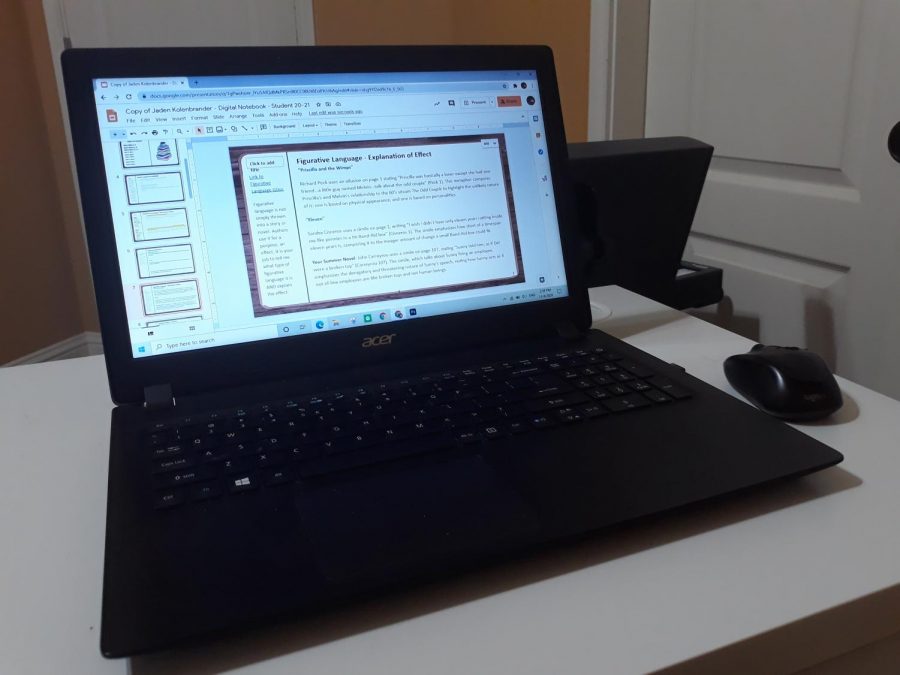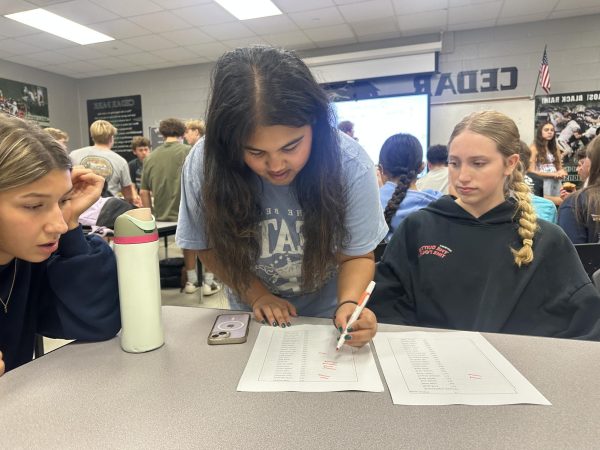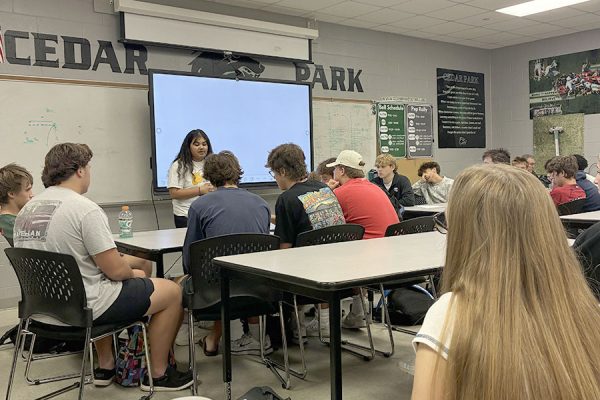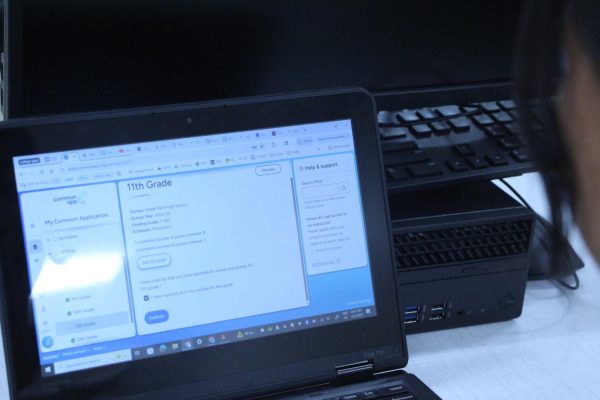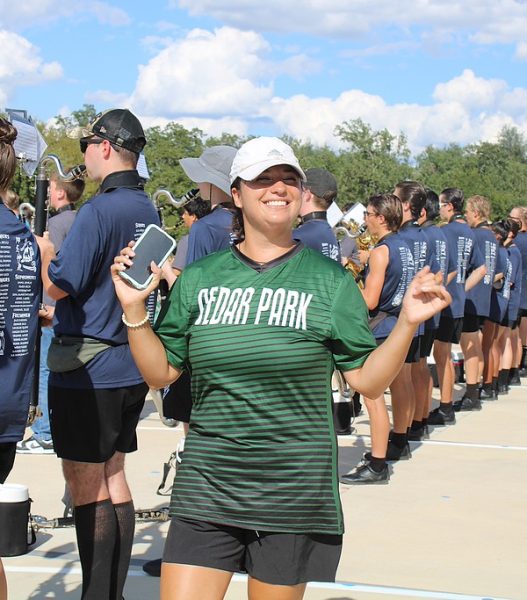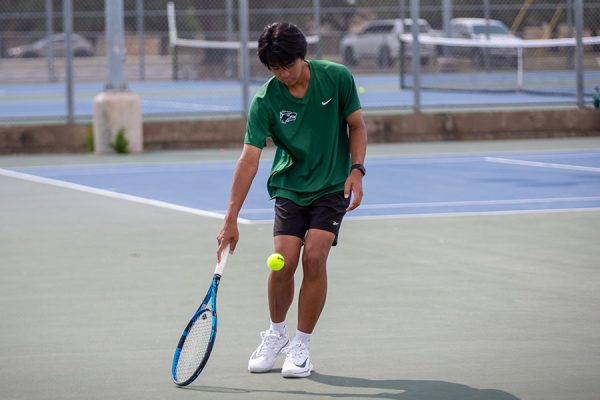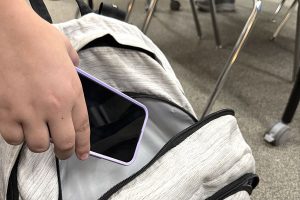An Underappreciated Group
Why We Should Pay More Attention to Teachers
Amid online school, teachers have found efficient ways to digitally convert normal activities. I believe they should be more appreciated and here is why.
November 4, 2020
Although separated by age and role, the problem that was lingering before the beginning of school was the same for teachers and students: what is the optimal way of adapting to online school?
Students, for the most part, were successfully able to adjust their schedules and hold tight until they were able to go back to school. However, something I haven’t seen much of, and something that deserves more attention, are the systems that were put in place by teachers in order to facilitate the progression of online school.
Imagine: your curriculum is ready to go when you’re told that school has to be online for at least a single semester. This is technology you maybe haven’t used with students that, for the most part, you still haven’t met in person.
Considering this, I have noticed, from big to small, the little changes teachers have made in order to provide the best online environment for learning. Simply asking how we’re doing, or catching up with students in the Zoom chat, or giving us little trivia questions that we can discuss at the end of presentations like in Mr. Cieri’s chemistry class: these are all changes that relate to how there’s an extra layer of division between us. The act itself is small, but the effects of checking up on the well-being of students, both physically and mentally, is admirable when the pandemic was already such a barrier to both of these.
The most common method has been to simply turn your mic on or go to Zoom chat and dispense any information that has been a part of your life. This has resulted in multiple classes where students are so caught up with what they have to say, that even the teachers forget to start the lesson! I feel that this would have been a rare situation if we were meeting physically. Yet, they are always able to go back on track and resume with the daily plans.
But, what about those daily plans? How does a teacher exclusively teach from the confines of a computer monitor? Presentations, whether from Google Slides or PowerPoint, for starters, have been the saving grace for many lessons. The technology is commonplace enough to the point where praise may seem a bit redundant, but having a useful way to progress through each chunk of information as the lesson continues is always a valuable resource to have. Every little personal touch, like an image that fades in or a sound effect that plays at a certain time, says that teachers are at least trying to have fun while doing it.
Now, presentations help with the lessons themselves, but how can every student keep track of it? What if they can’t afford new composition books or sheets of paper to organize their notes in?
Then the presentation can become the notebook itself. On the first day of my English class with Mrs. Madrid, we were given a Google Slides document containing a picture of a whiteboard and text to the side that listed the date, the format and the information required. You can type on the whiteboard using text boxes and if we somehow needed to change the format of the slide without having to go back and forth between each individual student, there was a little “update” button in the corner that allowed us to edit the slide based on that of our teacher’s.
In my opinion, this has been the most impressive adjustment to online schooling as of late. It’s good when they’re able to manage a class without any tech issues. But it’s great when a teacher realizes that the technology in their hands can be used to create efficiency that couldn’t exist by using the traditional paper and pencil.
I can’t brush everything under the rug. Some classes are incredibly prone to disconnecting randomly. I’ve seen others that frequently mistyped numbers to the extent where an assignment shows itself as being due three days ago when it was posted in the same hour.
Despite minimal inconveniences, I believe that the benefits of online schooling have outweighed the negatives. It’s often noted that, whether you’re talking about works of art, good journalism articles or well-made commercial products, the average person often doesn’t notice the dedication and strategies that go into each one in order to achieve maximum polish, but they are able to feel it.
What teachers do in order to adapt often goes unnoticed. However, we can all show small tidbits of appreciation for the hard work they’ve done. Maybe we can ask them how they’re doing. We could resolve to have better grades, especially with all the extra time that’s given for assignments. Or, we could give well-needed suggestions on how to improve their classroom. Whatever the case may be, teachers have tried their hardest to bridge the gap in communication. Let’s do the same.



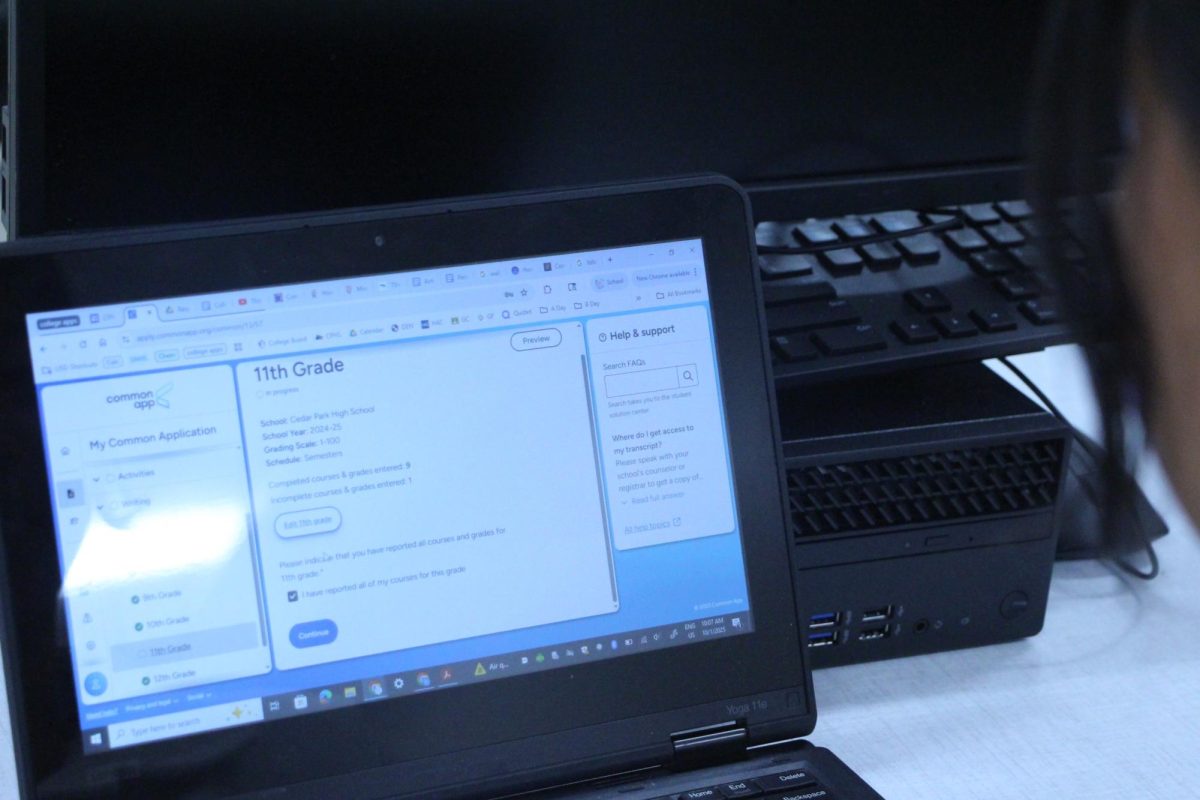






![Broadcast, yearbook and newspaper combined for 66 Interscholastic League Press Conference awards this year. Yearbook won 43, newspaper won 14 and broadcast took home nine. “I think [the ILPC awards] are a great way to give the kids some acknowledgement for all of their hard work,” newspaper and yearbook adviser Paige Hert said. “They typically spend the year covering everyone else’s big moments, so it’s really cool for them to be celebrated so many times and in so many different ways.”](https://cphswolfpack.com/wp-content/uploads/2025/05/edited-ILPC.jpg)



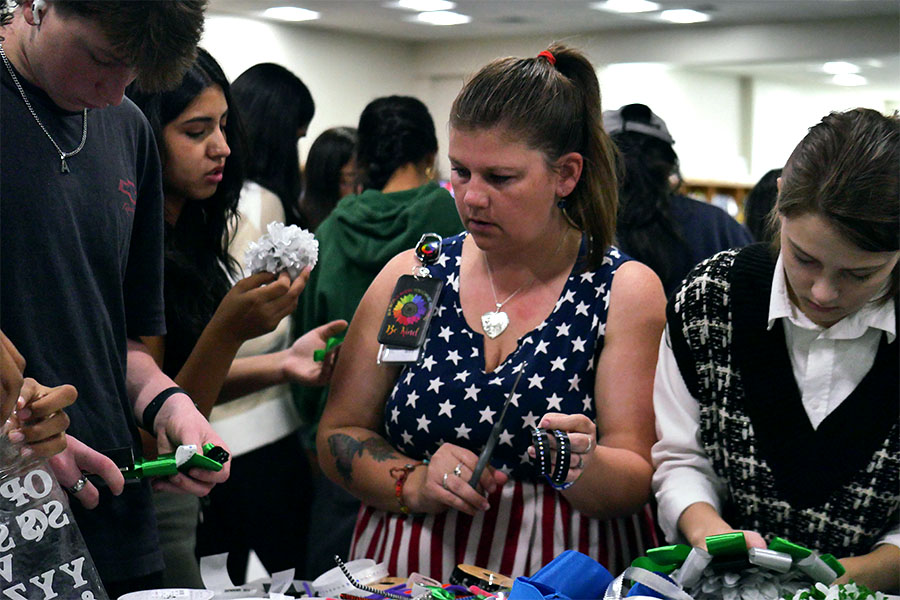

![Looking down at his racket, junior Hasun Nguyen hits the green tennis ball. Hasun has played tennis since he was 9 years old, and he is on the varsity team. "I feel like it’s not really appreciated in America as much, but [tennis] is a really competitive and mentally challenging sport,” Nguyen said. “I’m really level-headed and can keep my cool during a match, and that helps me play a bit better under pressure.” Photo by Kyra Cox](https://cphswolfpack.com/wp-content/uploads/2025/09/hasun.jpg)

![Bringing her arm over her head and taking a quick breath, junior Lauren Lucas swims the final laps of the 500 freestyle at the regionals swimming competition on date. Lucas broke the school’s 18-year-old record for the 500 freestyle at regionals and again at state with a time of 4:58.63. “I’d had my eye on that 500 record since my freshman year, so I was really excited to see if I could get it at regionals or districts,” Lucas said. “ State is always a really fun experience and medaling for the first time was really great. It was a very very tight race, [so] I was a bit surprised [that I medaled]. [There were] a lot of fast girls at the meet in general, [and] it was like a dogfight back and forth, back and forth.” Photo by Kaydence Wilkinson](https://cphswolfpack.com/wp-content/uploads/2025/03/Kaydence-2.7-23-edit-2.jpg)
![As her hair blows in the wind, senior Brianna Grandow runs the varsity girls 5K at the cross country district meet last Thursday. Grandow finished fourth in the event and led the varsity girls to regionals with a third place placement as a team. “I’m very excited [to go to regionals],” Grandow said. “I’m excited to race in Corpus Christi, and we get to go to the beach, so that’s really awesome.” Photo by Addison Bruce](https://cphswolfpack.com/wp-content/uploads/2025/10/brianna.jpg)











